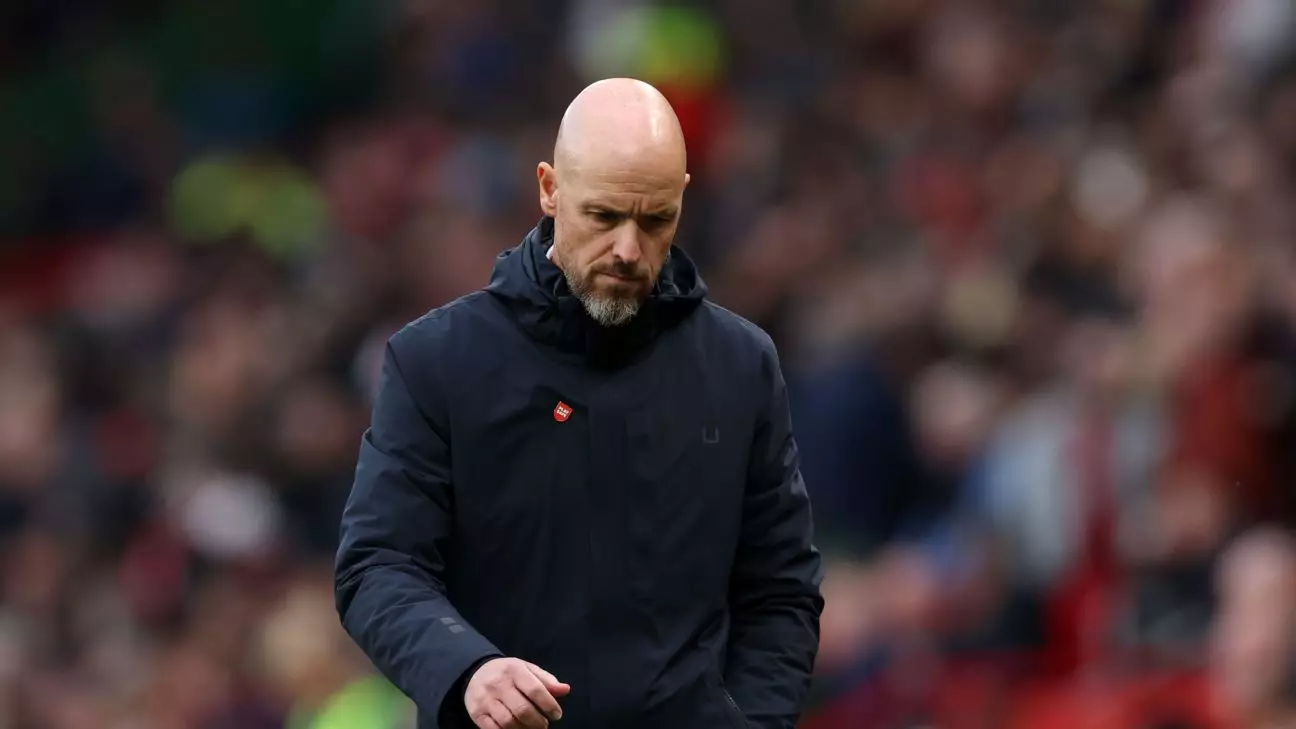Erik ten Hag, the manager of Manchester United, finds himself amid a swirling storm of criticism following a disheartening 3-0 defeat at home against Tottenham Hotspur. With the loss exacerbating already mounting pressures, Ten Hag’s future at the club seems precarious, especially after a season start that has yielded merely three victories from eight matches. Despite the turbulent circumstances, Ten Hag remains resolute, asserting that he feels no immediate threat of job termination, which showcases either a commendable level of confidence or a blind spot towards the reality of managerial dynamics in modern football.
The challenging situation is further complicated by external expectations and the ambitions of a club of United’s stature. The recent match was characterized by a frustrating display, where even the dismissal of Bruno Fernandes in the first half could not be used as an excuse for the team’s lack of cohesion and tactical execution throughout the game. The reality is that the defeat against Tottenham was not an isolated incident; it was indicative of systemic issues that have plagued the squad.
Tactical Shortcomings and Accountability
One critical aspect of Ten Hag’s leadership is his candidness about the areas that need improvement. After the Europa League draw against FC Twente, which saw United concede a goal embarrassingly similar to one conceded days earlier against Spurs, Ten Hag expressed visible frustration. He underscored the necessity for tactical discipline, emphasizing that player errors cannot be repeated, especially when such loopholes have been explicitly highlighted in training sessions.
It’s concerning for fans when managerial strategies appear ineffective against repeating errors, suggesting either a disconnect in communication or a lack of progress in player development. Ten Hag’s assertion that the squad must engage collaboratively reflects an awareness of the collective responsibility shared by ownership, staff, and players. However, one wonders whether this unity truly exists or if underperformance is a symptom of deeper problems within the club’s structure.
The Road Ahead
Looking ahead, Ten Hag faces a grueling schedule that includes matches against FC Porto and Aston Villa. The pressure to deliver results intensifies with each passing game, as the specter of potential dismissal looms larger. Football management is ruthless, and history shows that clubs are quick to make changes when results fall short of expectations. The upcoming showdown at Villa Park may serve as a litmus test for Ten Hag’s tactical acumen and his ability to rally his players in adverse situations.
Additionally, the narrative surrounding Ten Hag’s tenure is not just about moments of despair but also about the potential for growth. The notion that “every game is a new opportunity” embodies a mindset of resilience that is crucial for any team striving for success. Nevertheless, this philosophy can only bear fruit if players effectively implement tactical adjustments and learn from past missteps. With an international break looming, this week may very well determine whether Ten Hag’s vision for Manchester United is given further time to materialize or if the club will seek a change at the helm.
While Ten Hag remains optimistic, the underlying challenges at Manchester United suggest that the next few games will be pivotal. The footballing world will be watching closely to see if Ten Hag can turn around the current situation or if the pressure will ultimately lead to his downfall.

